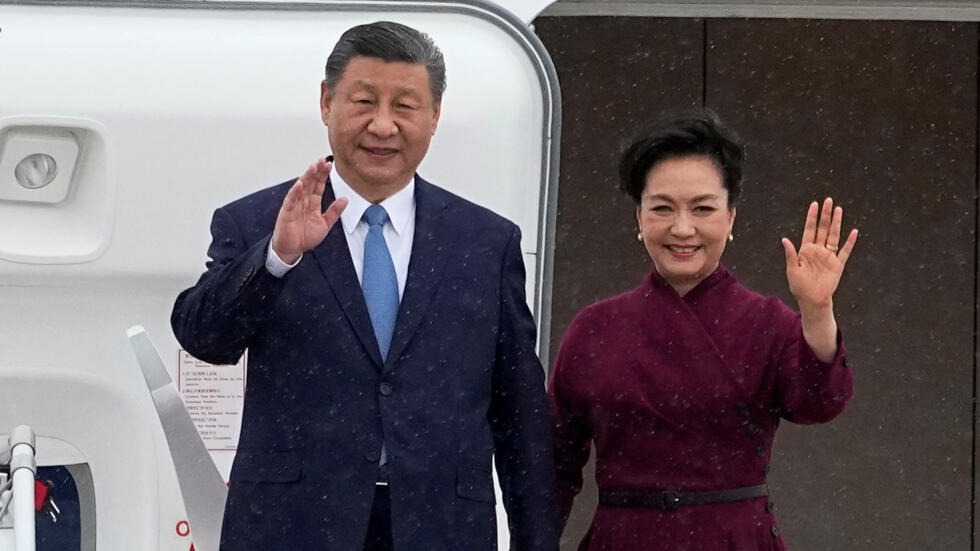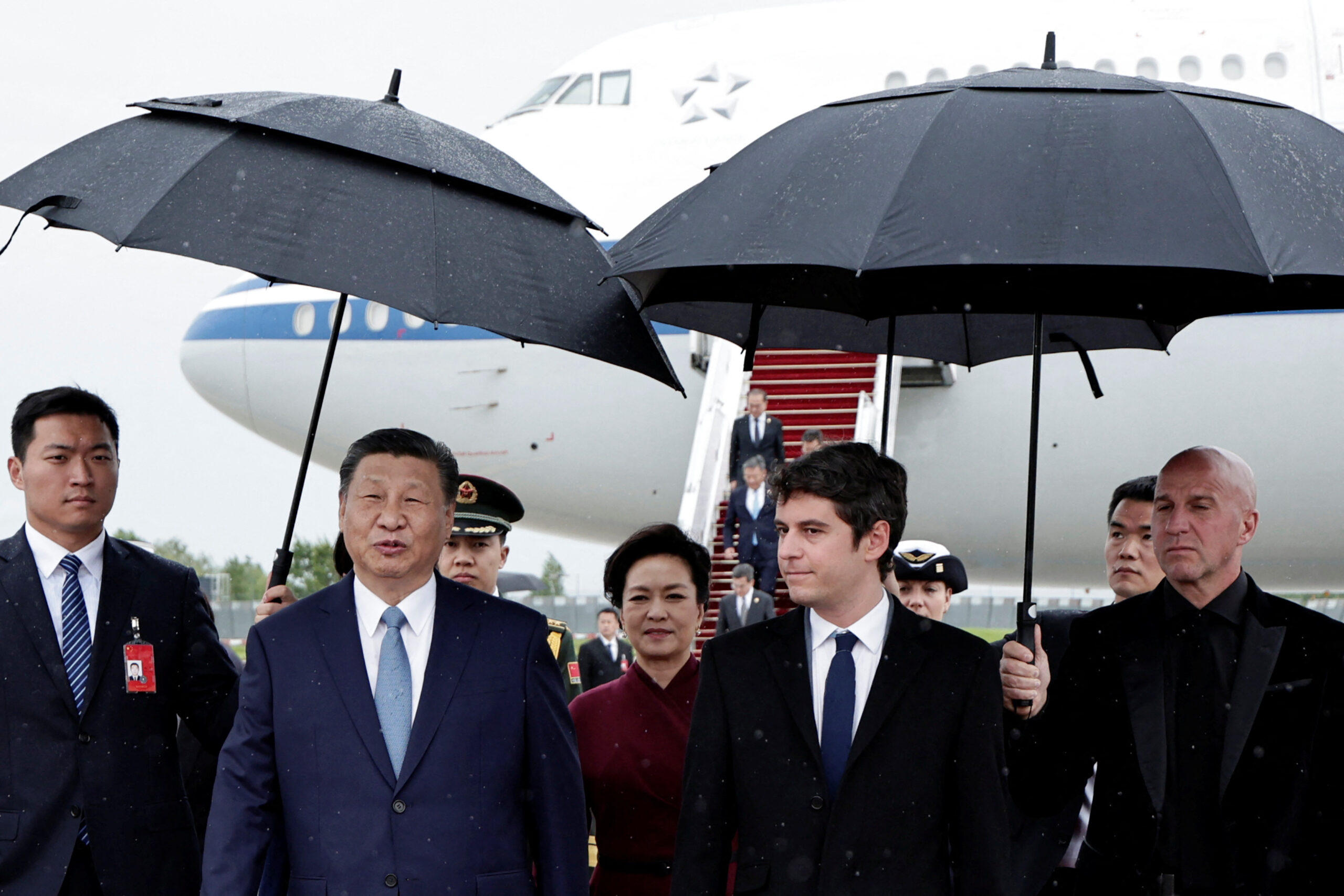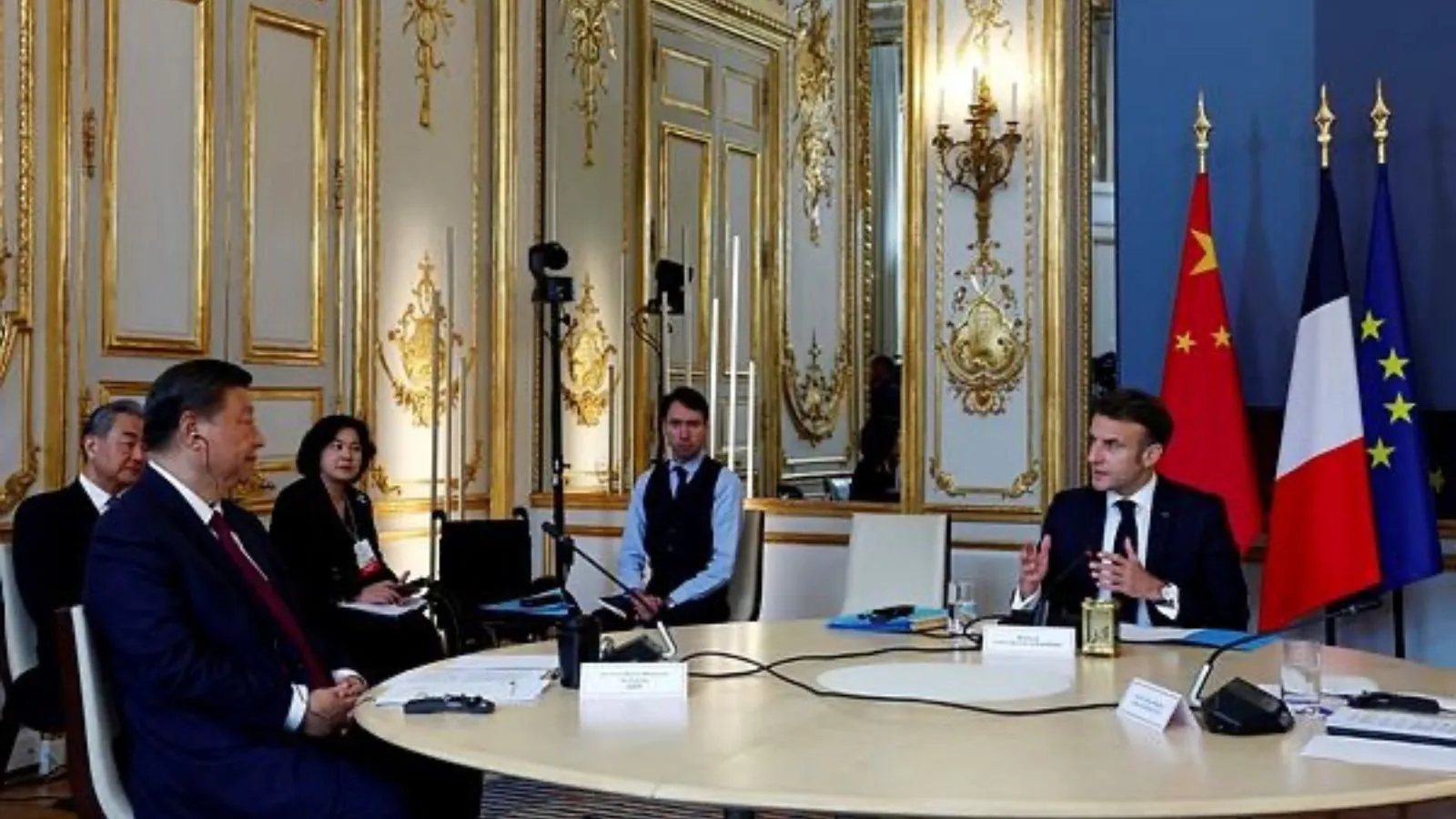Onlookers considered the recent two-day visit of the President of the People’s Republic of China, Xi Jinping, to the capital of France to have accumulated a uniquely relevant mission. In the most generic sense, Jinping visited France to improve the official relationship between France and China, enhance the economic bonds between the countries, and touch upon several inherently global issues.
For all intents and purposes, Xi’s journey brought the same obvious expectations, and recent patterns once again testified to his foreign policy being smoothly oriented toward cooperation and multilateralism . This paper aims to deliver a thorough analysis of Xi Jinping’s visit to Paris in terms of its context, political reasoning, and more comprehensive implications for the diplomatic development of both states.

Historical Background of China-France Relations
Early Beginnings and the Era of Mao
The beginning of China and France cooperation is, paradoxically, rooted in the early 20 th century. The cultural ones started in the 1920s, as the French public was interested in the Chinese culture after several decades of isolation. Thus, one of the most important French writers, Victor Segalen, noticed “it was in it, down to the smallest details of bodily expression, the repetition of a rhythm: our two languages of gesture met, understood each other ” .
However, the formal ones were opened relatively recently – in 1964. France was the first of the major Western states to open diplomatic relations with the People’s Republic of China, led by Mao Zedong . Since that moment, French foreign policy became an independent factor in geopolitical reconstruction against the US and USSR blocks. These events shaped the basis for today’s Sino-French relationships.
Post-Mao Reform Era
After the death of Mao in 1976 and the beginning of a new era of economic reform in Deng Xiaoping, France remained a major partner in China’s modernization. Among the first western countries to receive the new market-driven prospects in Chinese economic policies, the western country opened towards larger trading relationships . French companies benefited from the sudden growth of the Chinese bourgeoisie, thus becoming efficient tradesmen of technology and machinery essential for large infrastructure projects . Similarly, Chinese interest in French culture, luxury industries and technology also skyrocketed throughout the 1980s and 1990s.
Shifts in the 21st Century
Over the years, both France and China have presented, and addressed their change in the global arena, including the economic backdrop. In fact, France has advanced to one of China’s top trade partners in Europe, while China has demonstrated significant interest in French products and technology .
The two countries’ quest for addressing the climate amendment , evolution of the global governments, and influence to each other’s economy has fueled this move. There have been occasional hiccups, for instance, with regard to the trade disparities and France remarks on human freedom in China . But, the two nations have at all times found a course resolve issues through diplomacy.

Objectives of Xi Jinping’s Visit
Strengthening Bilateral Economic Ties
Finally, aside from the cultural experience, the major objective of home togel Xi Jinping’s Paris tour was closer economic cooperation with France. The reason for the Paris visit was the signed agreements on boosting trade and entrepreneurship in many fields, including agriculture, technology, aero spaceship manufacture, and infrastructure.
However, the most significant part of these aspects is French corporations’ ambition to take advantage of the increasing purchasing power of the Chinese middle class. This is indeed significant, though from the other point of view, “France is a means for the Chinese to enter the much larger European Union market “.
The contracts signed by Xi Jinping and Emmanuel Macron are the embodiment of this process and doing business, and French corporations, like Airbus and L’Oréal, aim to maximize their revenues of the largest in the world. At the same time, Chinese corporations made the agreements on the renewables and the infrastructure, and the manufacturing approach seems advantageous for them.
Collaboration on Climate Change
Finally, during Xi’s arrival in Paris, climate was another side that endorsed the pursuit of the course. At that time, France had been a pioneer of the world climate policy and hosted the gathering that brought forth the Paris Agreement. Therefore, China and France had to showcase the cooperation’s need to strengthen as China holds the world’s leading spot as the greatest carbon emitter, while France is also known as the green technology leader .
Several new plans were shared between the two countries including the joint investments in the fields of renewable energy production and low-carbon transport, as well as pollution . Thus, the arrival proved equally China’s readiness to play a vast role in the climate internationally and ensure to propound itself as the world’s trusted partner.
Promoting Cultural Exchange
Cultural diplomacy was a prominent feature of Xi Jinping’s visit. China and France agreed to bolster academic exchanges, promote tourism, and increase cooperation in the arts. The visit served as an opportunity to commemorate the long-standing historical and cultural connections between the two nations. The China-France Cultural Exchange Year initiative, which had been ongoing for several years, saw further strengthening with new programs encouraging cross-cultural understanding. Museums, galleries, and educational institutions in both countries expressed renewed interest in joint exhibitions, research, and student exchanges.
Key Meetings and Agreements
High-Level Meetings with French Officials
Xi Jinping’s visit to Paris included high-level meetings with French President Emmanuel Macron, Prime Minister Élisabeth Borne, and Foreign Minister Catherine Colonna. Macron, who has sought a strategic and pragmatic relationship with China, was keen to promote economic ties while emphasizing European values.
During their discussions, Xi and Macron highlighted shared interests in strategic autonomy, global governance reforms, and economic diversification. The meetings showcased how both nations sought to establish a collaborative framework for addressing common challenges.
Major Agreements Signed
The visit culminated in several agreements. A memorandum of understanding was signed for joint infrastructure projects, with China offering investment in French infrastructure projects, including port development and high-speed rail. Trade agreements were signed in agriculture, aerospace, and pharmaceuticals, with China committing to increasing imports of French wine, cheese, and other agricultural products. Airbus, a prominent French aerospace company, secured a multi-billion-dollar deal to supply aircraft to Chinese airlines, highlighting the growing demand for air travel in China.
Joint research initiatives were also established to promote technological cooperation in artificial intelligence, telecommunications, and renewable energy. Both nations recognized the value of collaboration in cutting-edge scientific research, which could help them remain competitive globally.

Geopolitical Implications
EU-China Relations
Xi Jinping’s visit held significant geopolitical implications. France, being a key member of the European Union, acted as a representative of broader European interests. Xi’s engagement with French leadership symbolized China’s desire to improve relationships with the EU, particularly amidst rising geopolitical tensions between China and the United States. The EU-China Comprehensive Agreement on Investment (CAI) had recently faced challenges due to concerns over human rights and transparency.
Therefore, Xi’s visit was seen as an attempt to rebuild confidence and ensure that economic cooperation remains a priority.
China’s Expanding Influence
Xi Jinping’s visit also demonstrated China’s growing influence in global affairs. Presenting China as a responsible global power committed to multilateralism and cooperation was central to Xi’s diplomatic agenda. By signing agreements and fostering dialogues in Paris, Xi Jinping emphasized China’s strategic interest in strengthening ties with influential Western nations, positioning China as a leader in areas like technology and climate change.
France’s Balancing Act
France’s approach to its relationship with China is emblematic of its broader foreign policy strategy. President Macron, who advocates for a strong and autonomous Europe, recognizes the importance of engaging with China while maintaining alliances with NATO and the United States. As such, France is walking a tightrope between securing economic partnerships and upholding European values. By welcoming Chinese investment and cooperation, France can create opportunities for growth. However, Paris remains cautious of China’s growing influence, especially in strategic industries.
Challenges and Criticisms
Human Rights Concerns
A critical backdrop to Xi Jinping’s Paris visit was the issue of human rights. European leaders have criticized China’s policies, particularly regarding the treatment of Uyghurs in Xinjiang, the crackdown on pro-democracy activists in Hong Kong, and restrictions on freedom of speech. Although economic cooperation was the primary focus of Xi’s visit, French officials made clear their concerns regarding human rights. President Macron and other officials emphasized their commitment to defending these values and called for greater transparency and adherence to international standards.
Economic Competition
While seeking to increase trade, France remains wary of China’s economic policies. European companies have expressed concerns about unfair competition, market access barriers, and intellectual property rights. The visit allowed French officials to raise these issues and negotiate fairer terms for bilateral trade. French businesses are particularly concerned about China’s state-driven economic model, which they believe puts European firms at a disadvantage.
Strategic Autonomy
Strategic autonomy is another challenge highlighted during Xi’s visit. European countries are increasingly focused on reducing dependency on external powers, particularly in technology and defense. Discussions about digital sovereignty, 5G networks, and cybersecurity demonstrated the delicate balance between cooperation and protecting national interests. France is keen on safeguarding its industries from potential security threats while leveraging China’s expertise and market potential.
The Path Forward for Sino-French Relations
Enhanced Trade and Economic Cooperation
The agreements and dialogues resulting from Xi Jinping’s visit indicate a path forward for enhanced trade and economic cooperation between China and France. French companies have opportunities to access China’s consumer markets, while China can continue investing in French technology and infrastructure. Both nations recognize the mutual benefits of sustained cooperation, particularly in addressing challenges like climate change, global health, and supply chain disruptions.
Multilateral Diplomacy and Global Governance
Xi Jinping’s visit also emphasized the importance of multilateral diplomacy in shaping global governance. France and China are both permanent members of the United Nations Security Council and share a vested interest in promoting global stability. Continued collaboration on issues like nuclear non-proliferation, counterterrorism, and international development will be essential for fostering a more cooperative global environment.
Managing Divergent Interests
Despite the optimistic outlook, managing divergent interests will be crucial for maintaining a balanced relationship. Differences over human rights, market access, and security will require open dialogue and a willingness to compromise. Both nations must ensure that their strategic partnership is grounded in mutual respect and a shared understanding of global challenges.
Conclusion
Xi’s two-day sojourn in Paris was an integral diplomatic event, whose obvious subtext was China-France’s increasingly tight partnership and an attempt to integrate rapidly changing cooperation opportunities to arise from a tense common past. At the same time, such collaboration brings about a clear understanding of the difficulties and contradictions inherent in it. The visit’s outcomes are likely to further shape the dynamics of partnership between the two nations as they strive to adapt to the changing global agenda.
Xi’s sojourn in Paris proved that when the world is quickly rebalancing its power, the French international policy toward China is about one of the ways that China deals with Western realities. France’s strategic diplomacy can be seen as an accurate manifest of a strong but European Europe that cherishes its values but vouchsafes economic and infrastructural collaboration. In the final analysis, it is apparent that the visit raises the problems that both countries would have to solve as allies in an ever-changing world.
If you found this analysis of Xi Jinping’s visit to Paris insightful, we invite you to explore our article on the current state of American inflation. Understanding global economic dynamics is crucial in navigating today’s interconnected world. Thank you for reading and exploring with us.
